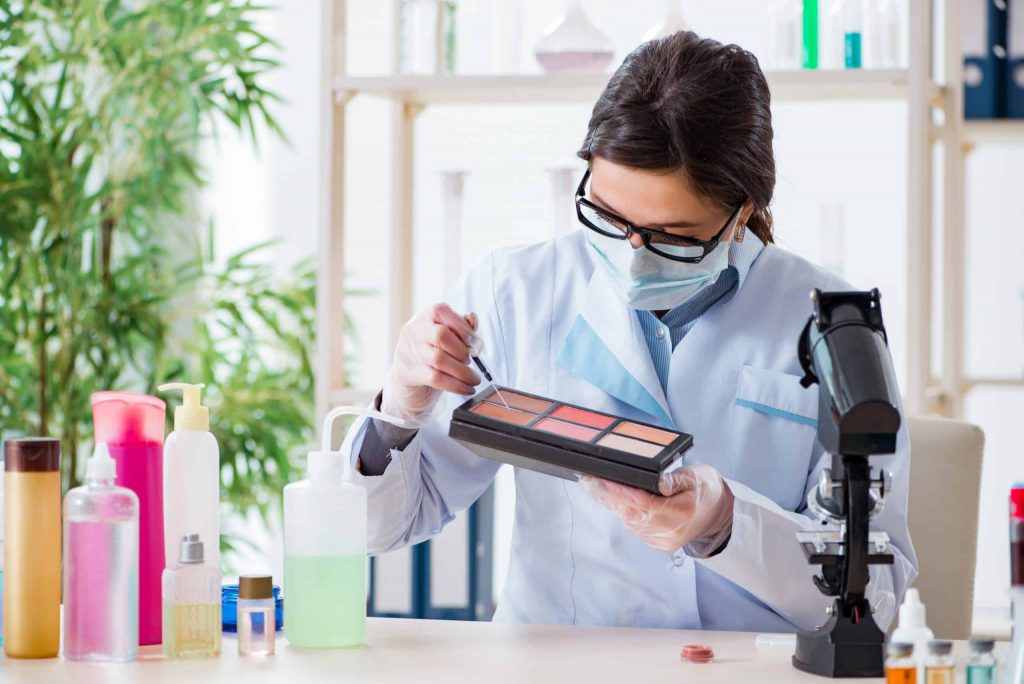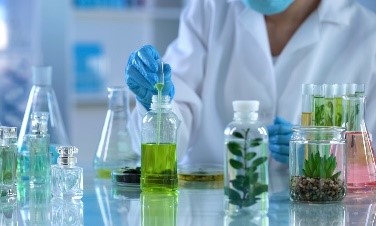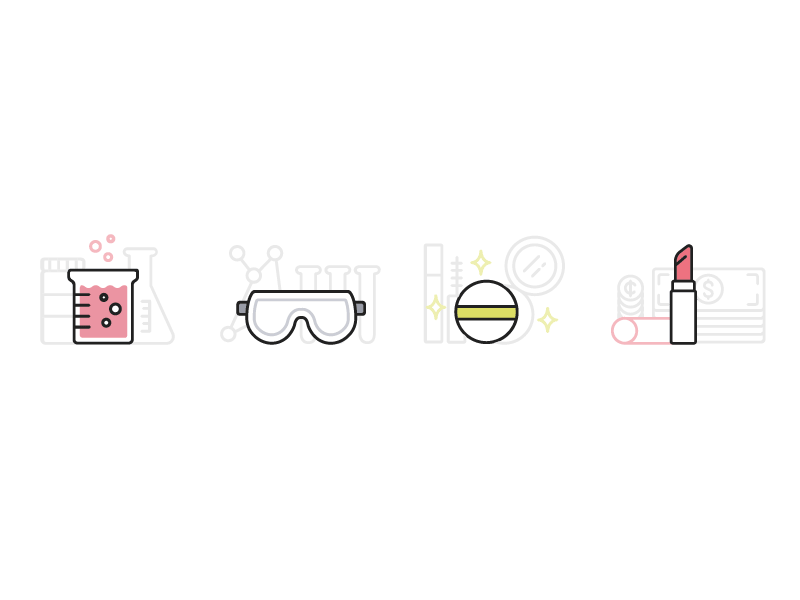Who wouldn’t like to look their best? Science and technology have worked their way into our lives in unexpected ways. And one of those is cosmetic products – from anti-wrinkle and anti-aging creams that make people look 10 years younger, to teeth whitening formulations to new flavored deodorants that blow our minds, cosmetic chemists are involved in developing all kinds of products. If you think this seems like a career path that interests you, read on how you could become a cosmetic chemist yourself.
What do cosmetic chemists do?
A cosmetic chemist’s profession requires them to conduct a wide range of tasks both inside and outside of the lab. The primary role is being a formulator – combining raw ingredients to make cosmetic items such as lipstick, nail paint, skin lotions, shampoos, conditioners, deodorant, hair dye, body washes, toothpaste, sunscreen and any other form of personal care product. They also come up with new product ideas, are involved in testing cosmetic prototypes, troubleshooting manufacturing issues, analyzing competitor products, and acquiring abilities to better grasp the difference between a good product and one that does not function as well.
In a typical day, a cosmetic chemist is required to do the following tasks –
- Examining current makeup and skincare business treads and latest research
- Combining various ingredients to make a novel cosmetic product
- Generating ideas for new products
- Taking part in focus groups
- Conducting pH tests
- Prototypes testing for quality and safety.
- Maintaining sanitary work conditions throughout the production process
What are the various roles that cosmetic chemists work in?
Analytical Services — These experts are the closest thing to scientific research in the beauty business. They examine raw materials and develop standards against which subsequent batches of products and raw materials may be evaluated. Analytical Departments are found in the majority of raw material suppliers and finished goods industries.

Cosmetic Formulator — This profession entails dealing with chemicals and combining them in the proper proportions to make quality products. The majority of these positions are with Finished Goods and Contract Manufacturers. Formulators are employed by a few raw material suppliers in their Technical Services sections as well. If you enjoy inventing and creating, you should consider to work as a formulator.

Process Engineering (PE)— A process engineer is generally someone with a background in chemical engineering. They assist firms in designing manufacturing facilities, scaling up batches from lab scale to production scale, and obtaining items manufactured at various locations across the world. If you enjoy traveling, making things, and engineering, this may be the career for you. Almost any cosmetic firm with a production facility will employ PE scientists.
Right Skill = Bright Future
Quality Control Chemist (QA/QC) — These chemists are in charge of assessing if raw materials and the finished products fulfill safety and functioning criteria. If you love working with GC, IR, Mass Spec, and other instruments, you could be interested in a QC or QA position. These scientists are employed by every firm in the sector.

Regulatory Scientists — Regulatory scientists examine rules and regulations for the production of cosmetic goods to decide if particular substances may be used or not, how they must be labelled, and what amounts are suitable. A profession in regulation is an excellent option for those who enjoy science but do not want to work in a lab. Regulatory scientists are hired by nearly all firms, and new roles are being added all the time.

Sales — Raw material businesses want salespeople with scientific expertise to market their new compounds to formulation chemists. If you enjoy interacting with others, and bargaining, a career in sales may be for you. Furthermore, they are the folks in the sector that have the most flexible employment and earn the most money.
Which Skill Should You Master?
Synthesis Chemist — If you like organic chemistry, raw material synthesis is the place for you. These chemists operate in laboratories to create novel raw materials from diverse feed stocks. Often, you don’t know what a material can accomplish, but you know you can make it. The majority of these employment will be with raw material providers.

What are the qualifications needed to become a cosmetic chemist?
At 10+2 level, you should choose science stream with Biology, Chemistry, as mandatory subjects. There are institutes that offer Bachelor’s degree in Cosmetics Technology, in under graduation. You could also choose subjects like Chemistry in UG, and choose to specialize at Master’s level. It is preferable to do a PG for more opportunities in the industry. The beauty industry is an evergreen industry that is here to stay. If you’re someone passionate about cosmetics, then this is career option for you to consider choosing.






